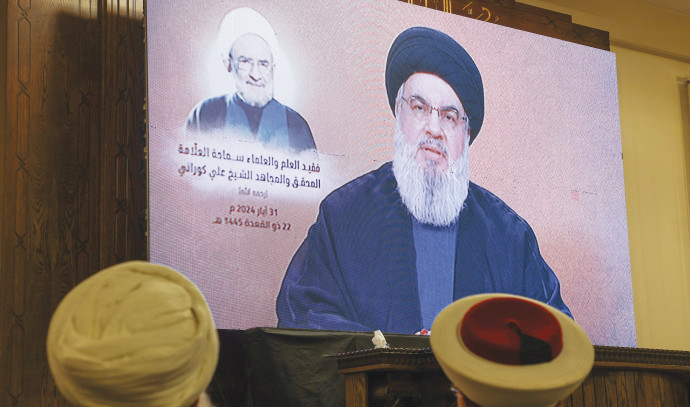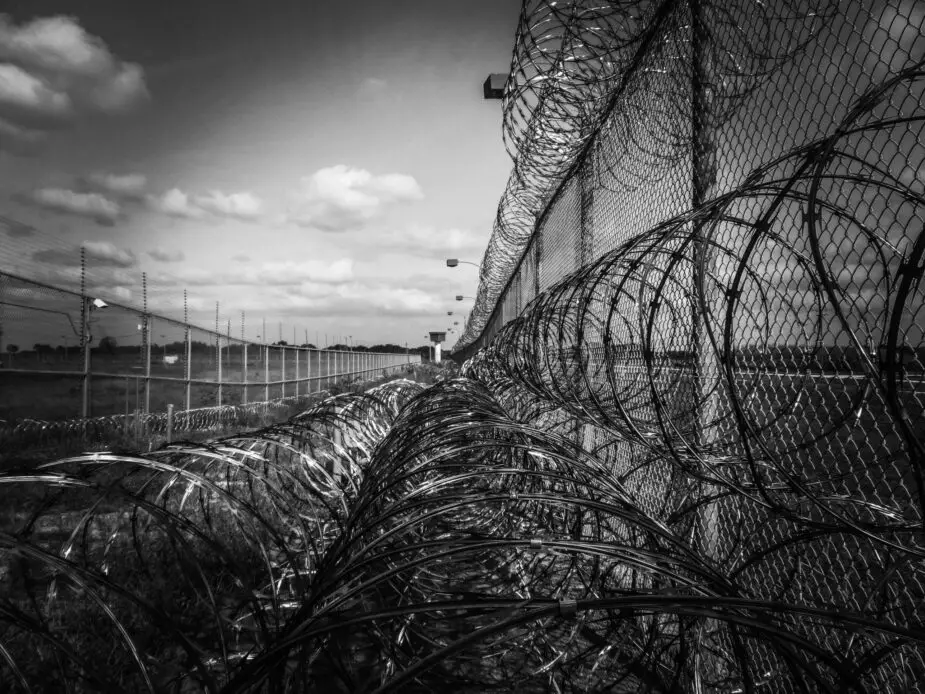Reports over the weekend suggested that the Arab League was changing its stance on Hezbollah. Arab League Secretary General Hossam Zaki reportedly spoke at length with Hezbollah’s Lebanese MP Mohammed Raad. “Zaki reportedly said there should be no further escalation and that Lebanon should elect a new president to fill the long-vacant post,” New Arab reported.
There is much speculation that the Arab League no longer considers Hezbollah a terrorist group. However, it is still unclear whether this represents a trend in the region among Arab League members or whether it is simply information from the Arab League about a possible war between Israel and Hezbollah in Lebanon.
According to Al-Akhbar in Lebanon, which is considered to be sympathetic to Hezbollah, Zaki visited Lebanon and held several important meetings. For example, he spoke with the commander of the Lebanese army and several other factions. “The most important meeting was with the head of the Loyalty to the Resistance bloc, MP Mohammad Raad. This was the first contact between the two sides in more than ten years, especially since the Arab League complied with the request of Saudi Arabia and the Emirates and approved the designation of Hezbollah as a terrorist organization in 2016.”
According to this report, “As for the content, the sources revealed that ‘Zaki informed Hezbollah that the university had decided to lift the terrorist status against him and that it believed that he would play an important role in the future of Lebanon.’ He also called for the presidential elections to be accelerated, pointing out the difficulty of electing one of the known candidates and saying that ‘the solution would be to agree on a third solution.'” While MP Raad did not comment on the issue of party classification, he reiterated his position in favor of (presidential candidate) Franjieh in the presidential file, stressing openness to any discussion, but the other party refuses dialogue.
This section of the report seems to clarify that the larger context is not the potential conflict with Israel, but actually Lebanese politics. Meanwhile, Turkish media house Anadolu also reported on the meetings. “In a televised statement by Egyptian news channel Al-Qahera the day after concluding his visit to Beirut, Hossam Zaki said: ‘In previous decisions of the Arab League, Hezbollah was classified as a terrorist organization, and this classification was reflected in the resolutions, which led to the cessation of communication based on these decisions.'” This report leaves some confusion.
“The League’s member states have agreed that the designation of Hezbollah as a terrorist organization should no longer be used,” Zaki said. “The designation of Hezbollah as a terrorist organization is no longer valid… the Arab League does not maintain terrorist lists, nor does it actively seek to designate organizations in this way,” Zaki explained. I looked for the original Al-Qahera report on this statement and could not find it. It appears to be a translation of a short video clip.
Lebanese politicians defend themselves against Hezbollah actions
It is noteworthy that Lebanese politicians who met with Zaki opposed Hezbollah’s actions, which are escalating towards a war with Israel. Lebanon24 media noted that “the head of the Phalange party stressed his rejection of the fact that Hezbollah is monopolizing decisions on war and peace and dragging Lebanon into a war that will only bring it tragedies. It has proven that it has not and will not serve Gaza or the two-state solution that grants the Palestinians their right to a viable homeland, which is the only way out to end the war and stabilize the region.”
Meanwhile, pro-Hezbollah Al-Mayadeen called Zaki’s visit a reversal of the League’s eight-year-old view of Hezbollah as a terrorist group. “Zaki pointed out that the discussion on the war in the south took a lot of time and expressed his hope that things would not develop further because ‘the evidence coming from the Israeli side is disturbing and expresses a desire to expand the war to Lebanon, which is rejected by the Arab League,'” the report said. This is important because it shows that the Arab League’s goal is to prevent a larger conflict.
In most cases, there is no clear evidence of how the Arab League officially changed its position. On the other hand, Zaki’s decision seems to come as the League has normalized its relations with the Syrian regime, and the Syrian regime has close ties with Hezbollah. Hezbollah intervened in 2012 to support the region. The Arab League’s decision to view Hezbollah more negatively came in the context of the Syrian civil war. With the war largely over, it is therefore understandable that the League would be more open to talks with Hezbollah. It is worth noting that the meeting was with a Hezbollah member of parliament in Lebanon, so the League can argue that this was merely a formality and a meeting with parliamentarians. Raad was recently criticized in Lebanon for comments criticizing Lebanese for going to the beach and nightclubs during tensions with Israel.
The bigger picture is that the region is worried about a possible war. Countries are considering asking their citizens to leave the country, and some countries, such as Saudi Arabia, are reportedly already urging their citizens to leave Lebanon. The Kingdom of Jordan has also advised its citizens against traveling to Lebanon.
The Arab League is not the only one reaching out to Hezbollah. Reports on Thursday also said a Qatari official is traveling to Beirut to meet with Hezbollah. This report also appeared on Al Akhbar and clearly shows that Al Akhbar has an interest in making the meetings with Hezbollah and officials in the region a big deal. This is intended to give Hezbollah legitimacy and make it seem as though it is playing a major role in negotiations on behalf of Lebanon.




